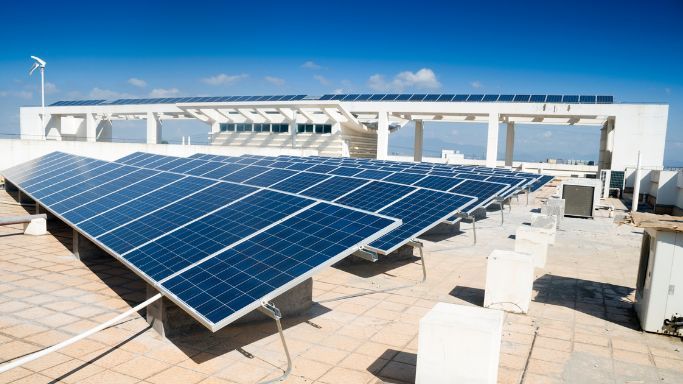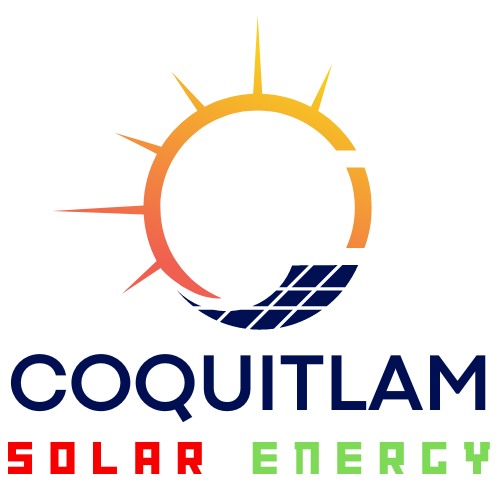Affordable Solar Solutions in Canada
Canada now leads in global renewable energy generation. The country has seen substantial growth in various renewable energy sectors by harnessing abundant hydroelectric resources from lakes and rivers.
Canada's renewable energy industry has made remarkable progress, driven by significant achievements in research and innovation. These advancements also offer
affordable solar and other renewable solutions.
Benefits of Renewable Energy Source - Solar Solution
Solar energy has gained popularity among Canadians because of its numerous advantages.
- Diminished Carbon Footprint: Installing solar panels can substantially counteract a significant portion of a home's daily carbon emissions. When used in conjunction with a battery storage system, solar panels can eliminate carbon emissions entirely.
- Affordable: Numerous Canadians view solar installations as a means to economize their electricity expenses. In numerous areas within Ontario, homeowners can anticipate financial savings through residential solar systems. This is mainly due to the high energy costs in these provinces. Solar energy production is a more practical option than buying electricity from a utility.
- Rebates and Incentives: The Canadian government provides numerous incentives to promote the use of renewable. This enhances its accessibility and affordability for homeowners. In the latter section of this article, we will discuss primary solar incentives and rebates accessible in Canada in 2023.
Types of Solar Solutions
| Solar Solutions | Description | Pros | Cons |
|---|---|---|---|
| Solar Panels | Solar panels transform sunlight and consist of energy particles called "photons" into usable electricity for operating electrical devices. | Cheaper electricity | Requires an environment with ample sunligh |
| Energy independence | |||
| Increase home value | |||
| Cleaner energy |
| Solar Solutions | Description | Pros | Cons |
|---|---|---|---|
| Solar Water Heaters | Solar water heaters harness solar energy to generate hot water. It offers a means to complement or substitute conventional water heating systems. | Minimizes your dependence on fossil fuels. | Potential inefficiency issues |
| Decreases monthly energy expenses. | For heating hot system only. | ||
| Easy to install | |||
| Requires minimal maintenance |
| Solar Solutions | Description | Pros | Cons |
|---|---|---|---|
| Solar Shingles | Solar shingles are solar cells designed to convert solar radiation into usable electricity while also serving as the roofing material for your residence. | An ideal choice when roof replacement is necessary. | Initial expenses are typically greater. |
| Stylish and modern appearance. | Exhibit lower energy efficiency than standard solar panels. | ||
| Ensures a clean and unobstructed roofline without visible solar panels. | A limited number of companies conduct solar shingle installation. | ||
| Eliminates external wiring vulnerabilities. |
Government Incentive and Rebates 2023
The Greener Homes Grant allows Canadian homeowners to save on energy-efficient enhancements. Property owners can receive up to $5,000 for energy-efficient renovations, with an additional $600 allocated to cover the expense of home energy assessments.
Homeowners must schedule a home evaluation with an energy advisor. Solar panels and inverters must adhere to CSA standards, with a minimum solar panel energy capacity of 1 kW. The purchase of panels and equipment from Canadian distributors is also mandatory.
Step in Installing Solar Panel Setup for Home
- Find the best location: This ideal position could be on the rooftop of your home, garage, or barn, or it might involve a ground-level platform.
- Set up the solar mounting structure and fasten the panels.
- Connect the solar panels. The typical method for linking solar panels is through the use of MC4 connectors.
- Affix the inverter in a position that adheres to the manufacturer's specified parameters. Some can be outdoors, and others indoors.
- Link the solar inverter to the batteries.
- Establish a connection between the inverter and a bidirectional meter
- Turn on the system.
Financing Options for Solar Installation
In Canada, there are various financing choices available for solar projects. Numerous solar companies extend financing programs tailored for solar panels.
- Loans and financing options: Numerous homeowners opt for financing their solar systems using various loan and financing arrangements, such as personal loans, home equity lines of credit, and home equity loans.
- Leases: Under a lease, homeowners lease the solar power system from the provider and make monthly payments spanning 20-25 years.
- Power Purchase Agreements (PPAs): The homeowner commits to buying the electricity produced by the solar power system at a predetermined rate for a specific duration.

Solar Panel Maintenance
- Conduct a routine inspection at least once a year to ensure all connections are in good condition.
- Cleaning is necessary, particularly in regions with infrequent rainfall or high dust levels. Accumulated dirt can obstruct sunlight from reaching the panels.
- Clean the modules using water directly. If dirt persists, specialized cleaning solutions designed for solar panels are available on the market.
Coquitlam Solar Energy is a leading solar energy provider for residential and business properties. We have a collective experience of over 20 years of delivering top-notch service to our clients in Coquitlam and the neighbouring regions. Our team of specialists can handle any solar installation project.
Frequently Asked Questions
How can I determine if my home is suitable for affordable solar panels?
- Assess your location – homes in regions with ample sunlight are more suitable for solar installations.
- Evaluate your roof's condition and orientation. A south-facing roof with minimal shading is ideal.
- Review your energy consumption and budget to ensure a solar system aligns with your financial goals.
- Consult with a reputable solar installer for a professional assessment of your home's suitability for solar panels.
What affects the price of a solar energy system?
- The size and capacity of the system play a significant role, as larger systems are typically more expensive.
- The quality and brand of solar panels, inverters, and other components.
- Installation complexity, such as roof type and condition, also affects pricing.
- Government incentives and rebates can offset costs, while additional features like battery storage or monitoring systems can increase the overall price.
- Market conditions and local labour costs.
Will I save more when I install solar myself or hire a professional?
Installing solar panels DIY-style may save on labour costs, but it comes with potential risks if not done correctly. A professional installer ensures proper setup, adherence to local regulations, and access to warranties. While DIY can be cost-effective for skilled individuals, hiring a professional guarantees the system's performance, safety, and long-term savings.
How much does a typical solar system cost?
In Alberta, BC, Saskatchewan, and most of Canada, a typical grid-connected solar system includes 10 to 24 solar panels, totalling approximately 4 to 9.6 kW in capacity. This translates to an estimated total cost, including installation, of roughly $12,000 to $25,000 for solar panels on residential homes.
How much money can I save on my electricity bills with solar?
Through the installation of solar panels, homeowners have the potential to cut down their electricity expenses by up to 43%. Homeowners can also participate in net metering, a system that allows them to sell surplus electricity to the grid and receive credits.
CONTACT
Telephone: 604-337-1958
E-mail: info@coquitlamsolarenergy.ca
LOCATION
Coquitlam, BC V3B 0A4, Canada
Coquitlam Solar Energy | All Rights Reserved | 2023
